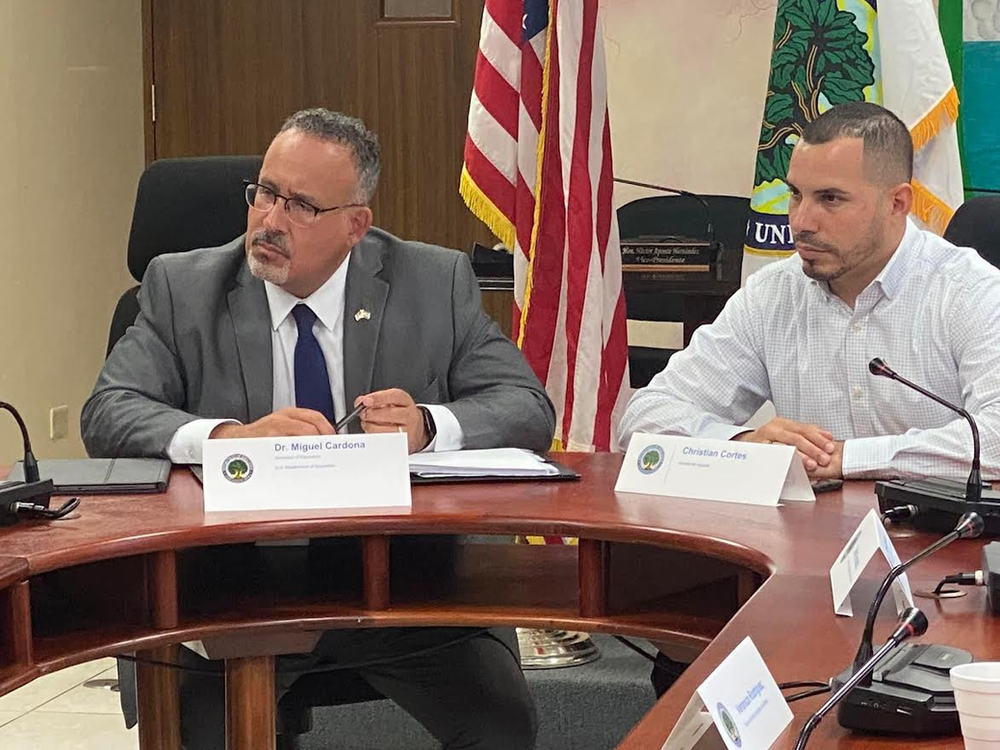
---
The U.S. Department of Education has advised the new government of Puerto Rico to decentralize the Education Department and remove political influences to enhance public education.
These recommendations appeared in a document titled “Puerto Rico Educational Transformation Guidebook,” which outlines a roadmap for local leaders to advance the decentralization of education initiatives on the island.
“To achieve the aim of establishing a premier educational framework in Puerto Rico, two main strategies have been identified — decentralizing decision-making and removing political influence from education,” the report asserts. “The first strategy empowers school communities to make decisions based on the specific needs of local students, allocate resources efficiently, enhance academic outcomes, and bring decision-making closer to the communities directly connected to students.”
“The second strategy separates political structures from the selection procedures for school and district leaders,” the agency noted. “Employing a merit-based approach builds trust, reduces turnover, and guarantees that the most qualified candidates are chosen for leadership positions, regardless of political affiliation.”
The transformation is grounded in the decentralization of the unitary system. In educational terminology, this entails shifting from a unitary system where authority is solely concentrated in the State Educational Agency (SEA) to a model where decision-making roles are shared between the SEA and the Local Educational Agencies (LEAs). These modifications collectively foster a more adaptable education system that enables local communities to directly secure federal funds, streamline the procurement process, enhance teacher recruitment and retention, and rebuild trust in the public education system.
The guidebook, directed to governor-elect Jenniffer González Colón, outlines crucial actions that the federal agency deemed vital for ensuring the successful continuation of the decentralization efforts. These initiatives are in support of Puerto Rico’s aim to establish the first autonomous LEA by July 2025, as stated by the U.S. Education Department.
“This monumental transformation of the Puerto Rico Department of Education (PRDE) will spur significant change and establish a system that empowers school communities, optimizes valuable federal and local resources, enhances accountability and trust, and most importantly, improves student opportunities and results,” outgoing Education Secretary Miguel Cardona expressed in the guidebook. “The federal commitment of unprecedented support will persist alongside capable leaders in Puerto Rico as this transformation progresses.”
Puerto Rico houses the seventh largest school district in the U.S. and has been undergoing a reform of its educational framework, with backing from the federal department. After natural disasters and the repercussions of the COVID-19 pandemic, the island’s existing unitary education system has faced difficulties in overcoming longstanding issues that hinder its ability to provide high-quality education to students.
It remains uncertain how anticipated sweeping changes in the federal Education Department with Donald Trump’s election as president will influence the transformation of Puerto Rico’s public education system in the future. Trump has committed to dismantling the fundamental functions of the U.S. Education Department (see related story on page 7).
